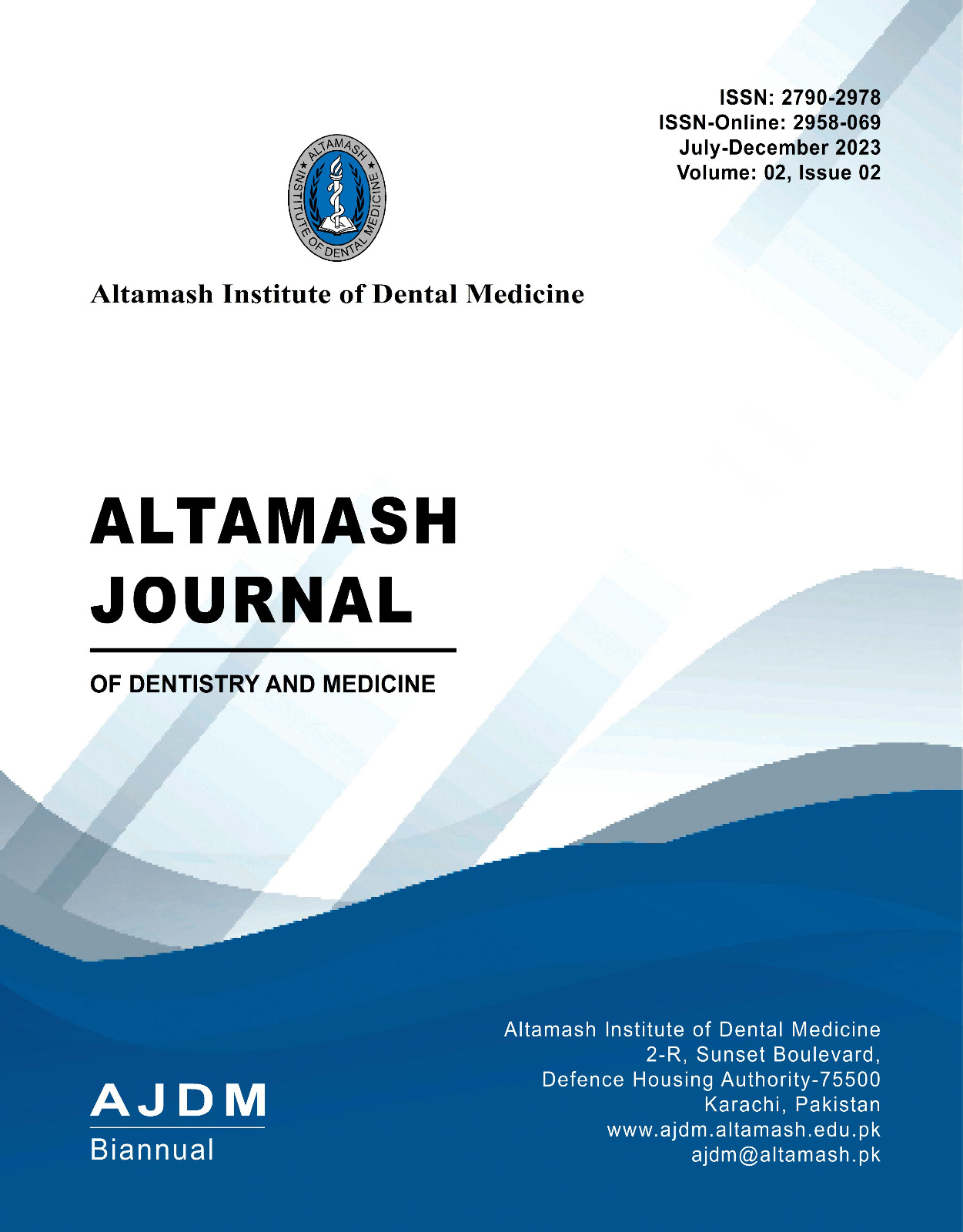Use of Smokeless Tobacco: A Public Health Issue
Abstract
This critical analysis examines the pervasive issue of smokeless tobacco (SLT) in Pakistan, particularly its alarming association with oral cancers. Despite being a major public health concern, the country faces challenges in enforcing and implementing tobacco control policies. The prevalence of oral cancer, linked to tobacco and alcohol consumption, underscores the urgency of addressing these risk factors, which constitute over 70% of oral cancer cases. Notably, SLT, including Naswar and Chalia, poses a significant threat in Pakistan, where it is widely used. While the World Health Organization's Framework Convention on Tobacco Control (FCTC) was ratified by Pakistan in 2004, gaps exist in the legal framework. The 2002 Prohibition of Smoking Ordinance primarily focuses on smoking, leaving room for SLT usage. Despite efforts to improve warning labels on cigarette packs, SLT remains a weaker link in terms of regulatory measures. Additionally, the critical analysis highlights the need for stricter enforcement, public awareness campaigns, and monitoring mechanisms to curb tobacco use, especially among the youth. In conclusion, the analysis emphasizes the fragile execution of tobacco-related laws in Pakistan, citing poor industry compliance and common SLT sales to minors.

Downloads
Published
How to Cite
Issue
Section
License
Copyright (c) 2023 ALTAMASH JOURNAL OF DENTISTRY AND MEDICINE

This work is licensed under a Creative Commons Attribution-NonCommercial 4.0 International License.
Altamash Journal of Dentistry and Medicine is an open-access journal and is licensed under CC BY-NC 4.0. which permits unrestricted non-commercial use, distribution, and reproduction in any medium, provided the original work is properly cited.
To view a copy of this license, visit https://creativecommons.org/licenses/by-nc/4.0 ![]()





